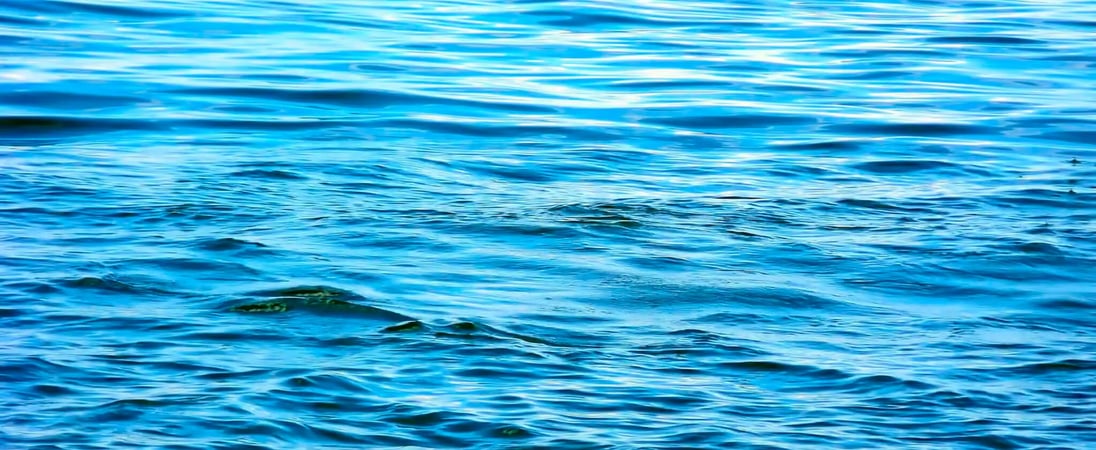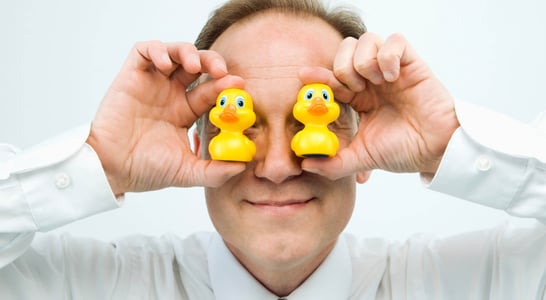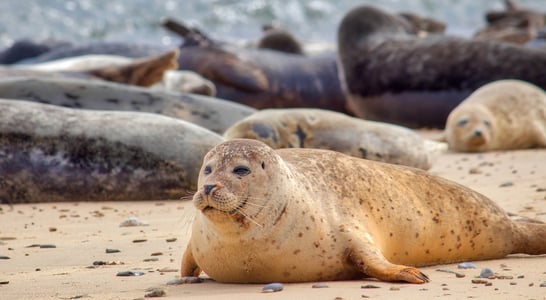
World Water Day
Ensuring the purity of this essential life source, a foundation for health and vitality, is a solemn duty for humanity's well-being.
World Water Day is an annual event that looks at the global issues surrounding access to clean, safe drinking water and sanitation.
Water is such a precious commodity that many take for granted. World Water Day is a chance to think about those people and places where water needs are still paramount, and seek to work together to find a solution.
How to Celebrate World Water Day
Raise Awareness About World Water Day
Every year, Water Day and its campaigns target millions of people via social media, traditional marketing, and PR.
There are also a number of dedicated websites and channels utilized by the UN for promoting, and raising awareness for the event.
In 2017, for instance, 700 individual events were held in 110 countries, while there were over 500,000 authors active on social media using the dedicated hashtag.
In 2018, there was an increase of 25% in the number of visits the website received as well as the maximum potential reach on social media growing larger.
Celebrities are also a key part of World Water Day and how it is celebrated, with a number of well-known celebrities becoming part of the annual celebrations.
Get Involved with Water Day Events
People from across the globe get involved in Water Day events, and are encouraged by the UN to ‘do their bit’ with the key message being that ‘we cannot afford to wait – everyone has a role to play’.
The UN encourages people to ‘do their bit’ by taking the time to learn what taking action means, sharing campaign messages far and wide, and taking steps to act and help in one way or another.
Every year, communities from across the globe get involved in supporting Water Day. What’s fantastic about this global event is the fact that there are a wide number of ways that every community can get involved.
There are a variety of options available to choose from, such as holding charity concerts, film screenings, and competitions, or hosting debates about the year’s focal topic, planning fundraising events, like swim marathons, triathlons, races, sports days, and fun runs, or organizing marches to raise awareness.
Attend Virtual Events
As well as face-to-face events, there are also a number of virtual events held each year. These consist of different activities, from social media debates and community chats to live webinars and Facebook virtual events.
If you’re unable to take part in World Water Day by attending an event being held, that does not mean that you are unable to get involved.
Learn More About World Water Day
Each year, the UN selects a theme for Water Day and focuses the entire celebration around this theme. For example, the theme for Water Day 2020 was ‘Water and Climate Change’ and explored how these two themes are closely linked.
The focus of Water Day, which looks to provide universal access to clean water, sanitation and hygiene meets targets of Sustainable Development Goals set out in the UN World Water Development Report.
This year’s Water Day focuses on the close link between water and climate change and looks at how, as a global community, we cannot afford to wait to take action.
The UN states that: “Climate delay is almost as dangerous as climate denial. Every country in the world must work more quickly.”
The UN has also highlighted the fact that extreme weather events have begun to make water more scarce, more unpredictable, and more polluted.
They have also looked at how we, as a society, need water to survive and as do the systems we rely on, including our healthcare, sanitation, education, business, and multiple industries.
The UN has said that action plans are vital for success when it comes to tackling climate change and that they need to be integrated across various sectors to prove effective.
History of World Water Day
It is an extremely sad but true fact: across the world there are 783 million people who still do not have access to clean water. While over 2.5 million people from across the globe still lack access to adequate sanitation facilities.
This concerning lack of accessible options for meeting these two basic human needs is a tragedy that people from across the globe are looking to reduce and manage, bringing clean water and better sanitation facilities to underprivileged communities across the world.
The first World Water Day was proposed in Agenda 22 of the 1992 United Nations Conference on Environment and Development that was held in Rio de Janeiro.
In December of that year, the United Nations General Assembly adopted the resolution that Water Day would be held each year. This would be a day dedicated to raising awareness around global water-related issues, with the key focus being on ensuring every community has access to a clean water supply.
In 1993, the first World Water Day was held, and has been held every year since then. It is from the need for clean water and adequate sanitation facilities for all, that World Water Day was born.
The United Nations decided to set up this day to help combat the clean water and sanitation crisis ongoing across the globe.
The aim of this event is to provide people with a day where they can focus on helping and supporting communities across the globe in gaining access to safe and clean water and safe sanitation facilities.
World Water Day also focuses on how normal people can help others in affected communities to reclaim their dignity while also improving their long-term health and wellbeing through access to clean, safe water.
Each year, certain other issues are also highlighted, such as safeguarding aquatic eco-systems local to communities.
World Water Day primarily focuses on access to clean water and adequate sanitation but it also looks at a number of water-related issues impacting the wider community.
World Water Day FAQs
What ancient practices reflect water’s cultural importance?
Ancient civilizations revered water as sacred. In Hinduism, the Ganges River is considered a living goddess.
The Romans built elaborate aqueducts and public baths to honor its value.
Meanwhile, Mayans performed rituals at cenotes, natural sinkholes, as they believed these were portals to the gods. These practices reflect humanity’s deep connection to water across time.
How did people in history measure water quality?
Before modern science, people judged water quality by its taste, smell, and clarity.
Romans built settling tanks to purify water, while medieval communities avoided stagnant water for fear of disease.
Indigenous groups used plants like cattails to filter water naturally, a practice still mimicked in modern water treatment.
What are some unusual water festivals around the world?
Thailand celebrates Songkran, the Thai New Year, with massive water fights symbolizing purification.
In Spain, the “Water Wars” of Lanjaron involve throwing water to promote community bonding.
In Hungary, the Easter tradition of “Watering Girls” sees men splash water on women for good luck and fertility.
Are there any quirky myths about water?
A medieval belief claimed that stagnant water housed spirits, inspiring many to avoid still ponds at night.
In Japan, “kappa” are mythical creatures said to live in rivers and pull people under if angered.
Ancient Greeks believed in naiads, nymphs who inhabited freshwater streams and springs.
How do astronauts conserve water in space?
On the International Space Station, astronauts recycle water from sweat, urine, and humidity using high-tech filtration systems.
This closed-loop system ensures no drop goes to waste, mimicking how Earth recycles water naturally.
What are some examples of water being used for artistic expression?
In Japan, “suikinkutsu” are water-filled jars that produce musical sounds as drips fall.
In Italy, Trevi Fountain is a masterpiece, blending art and engineering. Artists worldwide use ice sculptures and water installations to highlight water’s fleeting beauty and environmental importance.
Are there unexpected ways to save water in daily life?
You can save water by reusing pasta-boiling water to water plants or installing rain barrels. Even simple steps like using a broom instead of a hose to clean driveways can conserve hundreds of gallons yearly.
What animal behaviors teach us about water?
Beavers are nature’s architects, building dams that create wetlands supporting diverse species.
Camels conserve water by storing it in their blood rather than their humps. Desert frogs store water in their bodies to survive months without rainfall.
What is the rarest water source on Earth?
The underground aquifers in Namibia’s desert are among the rarest. Tapping into them has been essential for survival in one of the driest places on Earth.
These hidden reserves date back thousands of years and require careful management.
How does water influence language and idioms?
Water is central to many idioms. “Still waters run deep” implies quiet people often have hidden depths. “In hot water” means trouble, while “water under the bridge” signifies letting go of past conflicts.
These phrases show how water imagery reflects human experience.
Also on ...
View all holidaysNational Goof Off Day
Taking a break from the hustle and bustle of everyday life to have some fun and let loose is always a good idea every now and again.
Gryffindor Pride Day
Lion-hearted and fearless, they stand up for what's right, showing the world that courage isn't just about a scarred forehead.
As Young As You Feel Day
Age is just a number — a state of mind, not a limitation — it's how you feel that counts! Embrace your inner child and stay young at heart.



